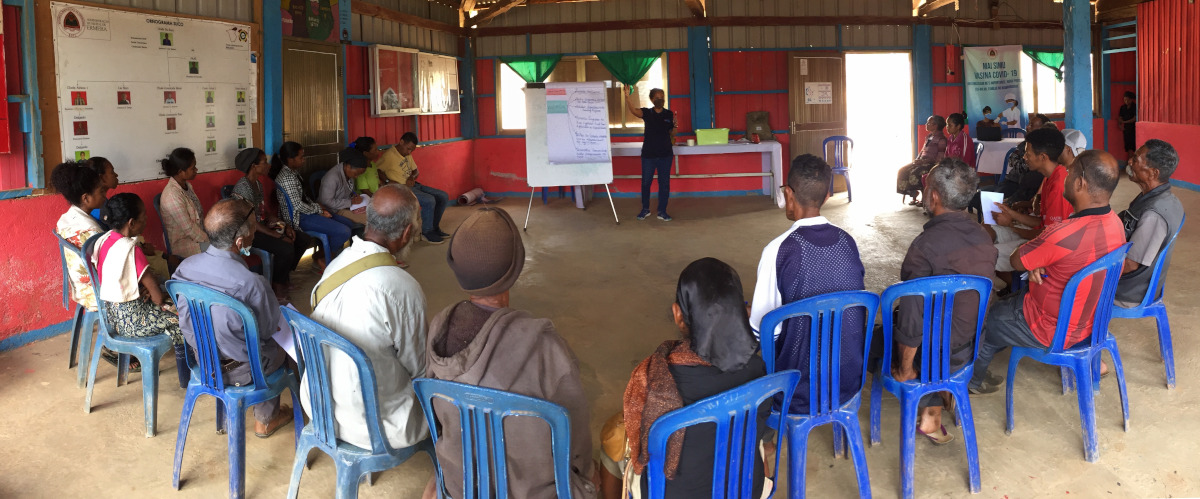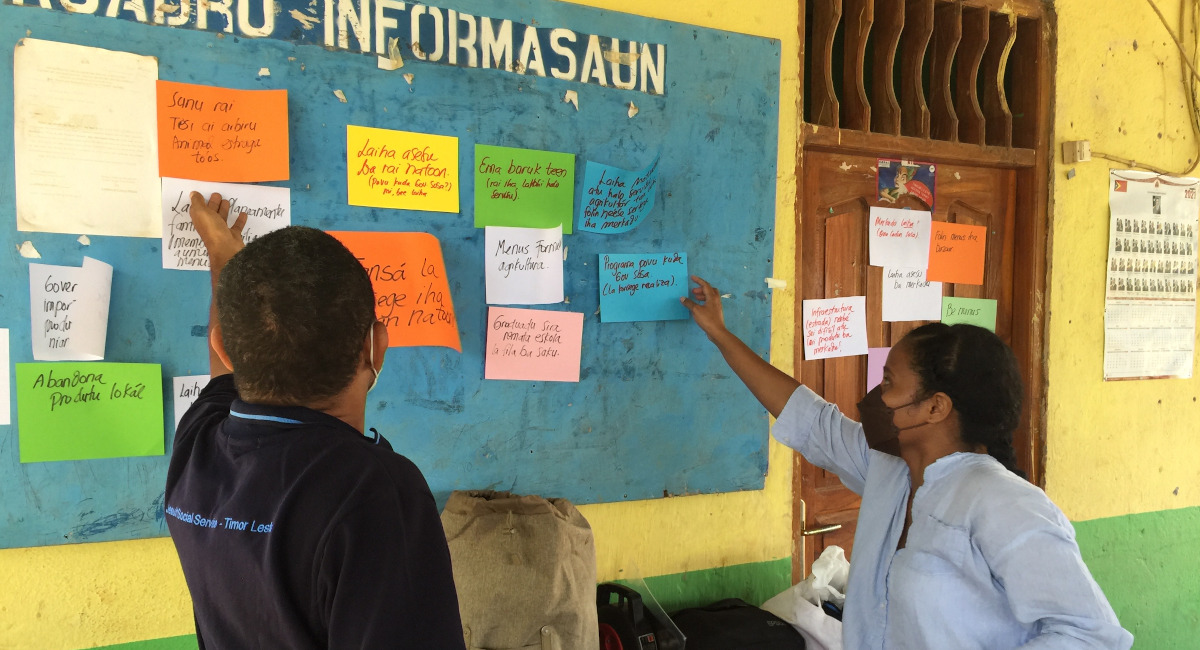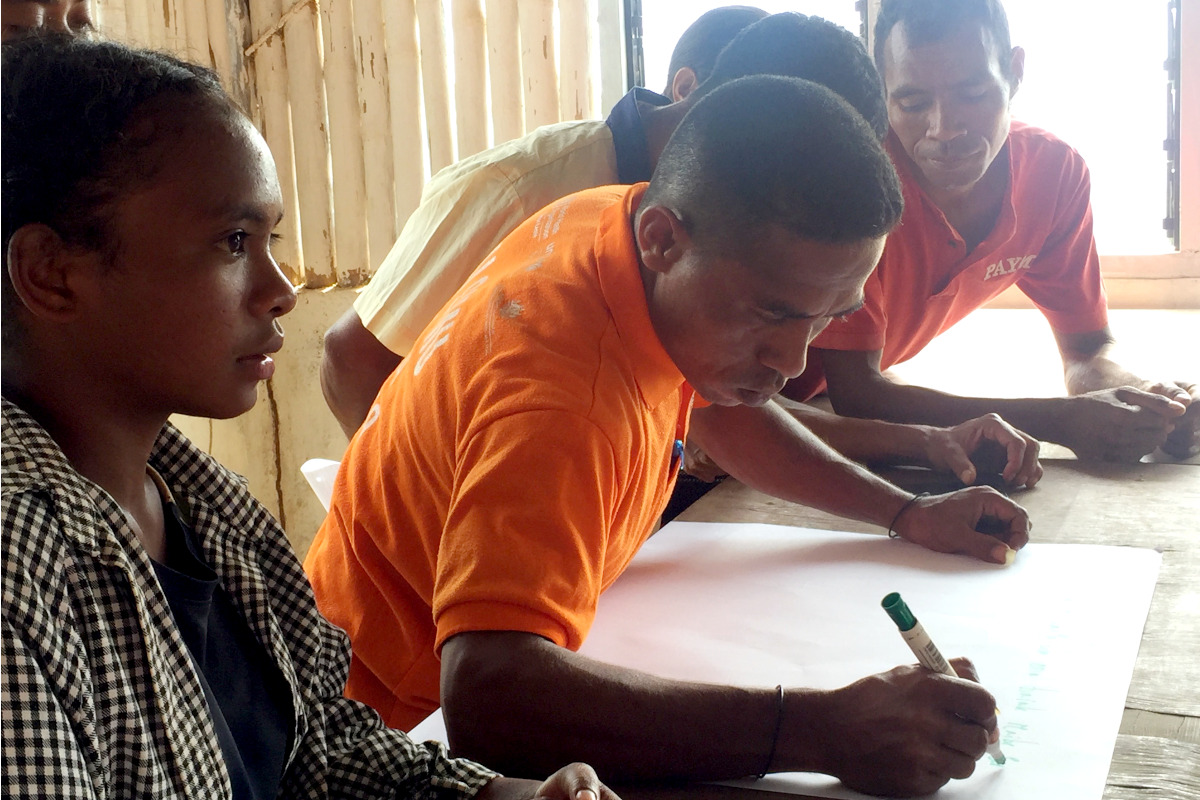
“Almost 80 per cent of the total population of Timor-Leste sustain their lives through agriculture, yet agricultural productivity is very low and hardly contributes to food security at the household level,” says Elsa Pinto, JSS-TL Program Manager for the food security project. She points out: “When a family has low agricultural productivity, it leads to limited access to food in quality and quantity.”
The problem is exacerbated by the lack of basic infrastructure systems, particularly poor road conditions, which prevent social services from reaching people in the rural areas. This contributes directly to high numbers of malnutrition among children. Data from a demographic and health survey done in 2016 showed that 46 per cent of Timorese children under five years old suffer from malnutrition.
In 2019, severe chronic food insecurity was identified in three municipalities, namely Ermera and Manufahi, and the Special Administrative Region of Oecusse-Ambeno. As a response, JSS-TL has started an initiative to promote food security in Railaco, an administrative post of Ermera, where the Jesuit mission is active in programmes related to water and sanitation, health, and ecology.
“JSS Timor-Leste focuses on community empowerment and community participation as driving forces in the implementation and sustainability of its interventions,” says Pinto. For them, holding community consultations at the start of a project is crucial.

Not surprisingly, some of the issues that emerged from the consultations were low agriculture and livestock productivity stemming from a lack of knowledge in sustainable agriculture practices, poor storage facility, low income, lack of access to water, and limited knowledge about health and nutrition.
“The communities have enough human resources but lack sufficient knowledge in finding ways to change their current situation,” shares Pinto. “We need to bring in experts to support the project implementation.”
The communities pointed out the strong sense of trust they have for the Jesuit mission as partners in development. There is access to land for agriculture and some of the primary schools in the target areas have gardening programmes that can be sources of inspiration and learning. There are also several organisations engaged in agricultural projects outside of Railaco from whom JSS and the communities can learn together.

(1) Capacity building through training and information sessions on agriculture and nutrition, and exchange programmes with other communities;
2) Reforestation through tree planting;
3) Strengthening of existing school gardening programmes; and
4) Identifying and protecting water sources located within the communities.
The project is still in its early stages of development. In walking the long journey towards achieving food security in Railaco, Pinto reiterates the importance of building relationships with the communities.
“We put a lot of weight on community empowerment and community participation,” she says. “We believe that the communities are the key actors in this entire process. They should be given the opportunity to harness their local knowledge and use their creativity for the development of their own community.”






